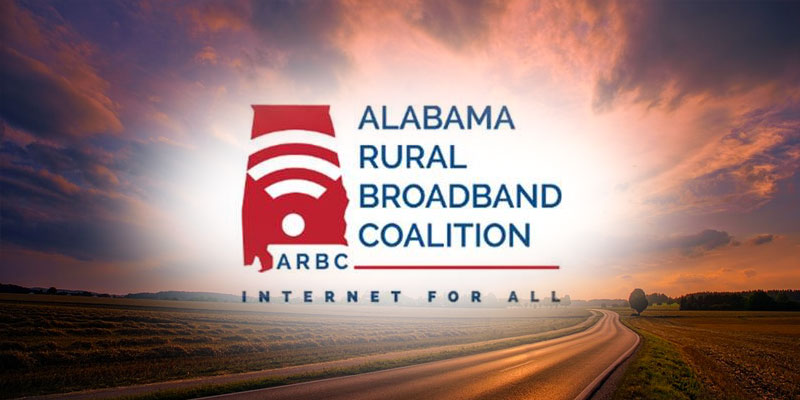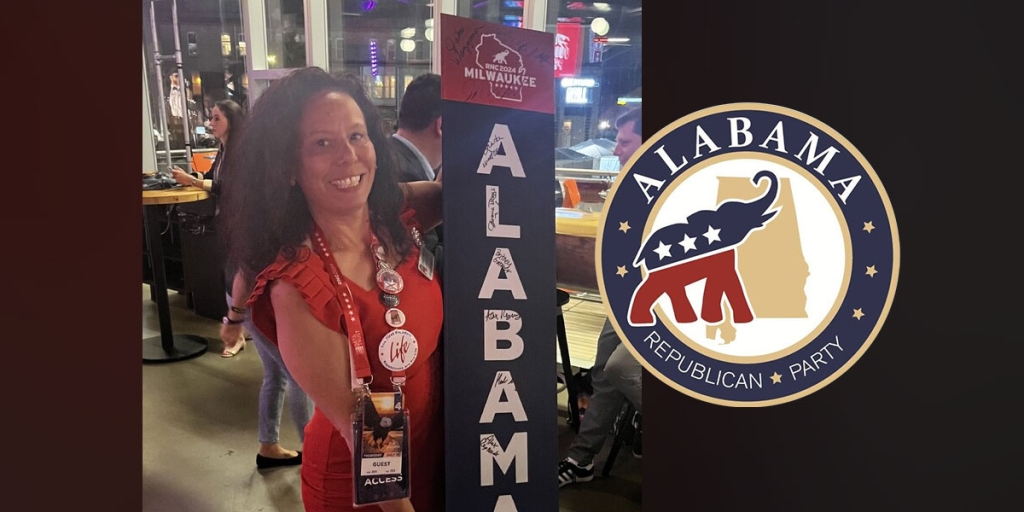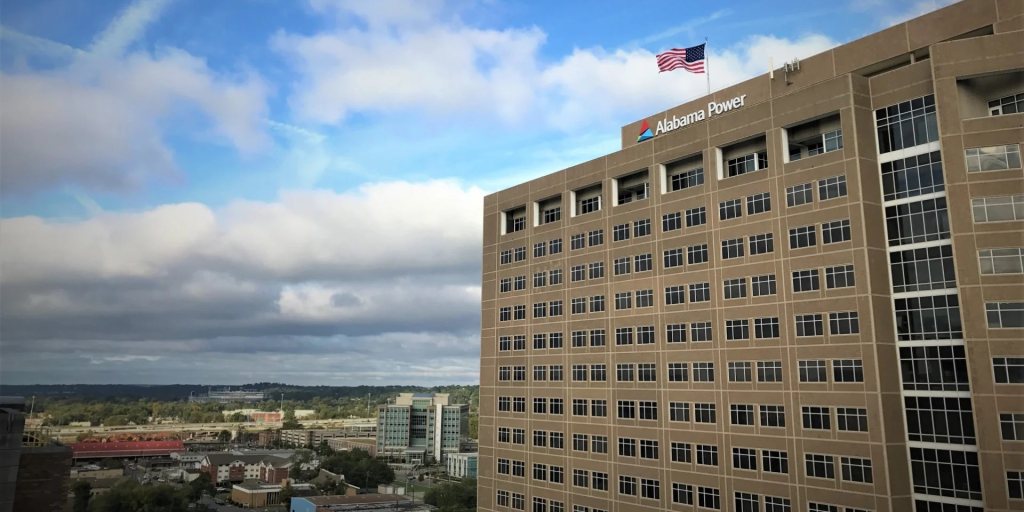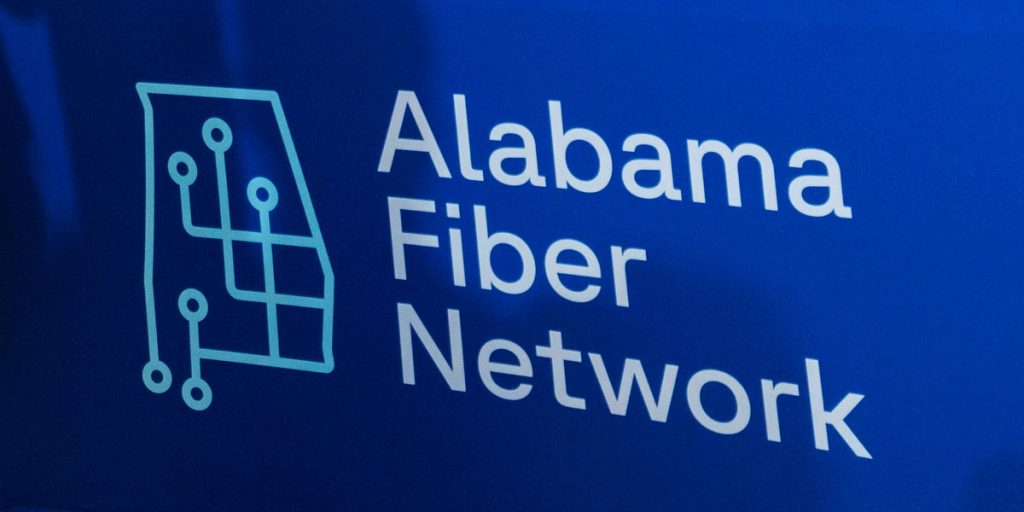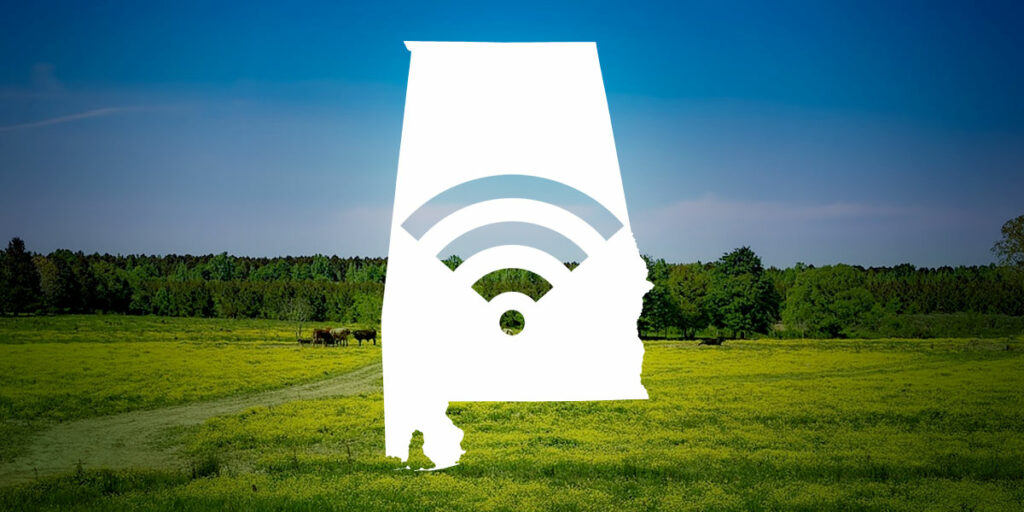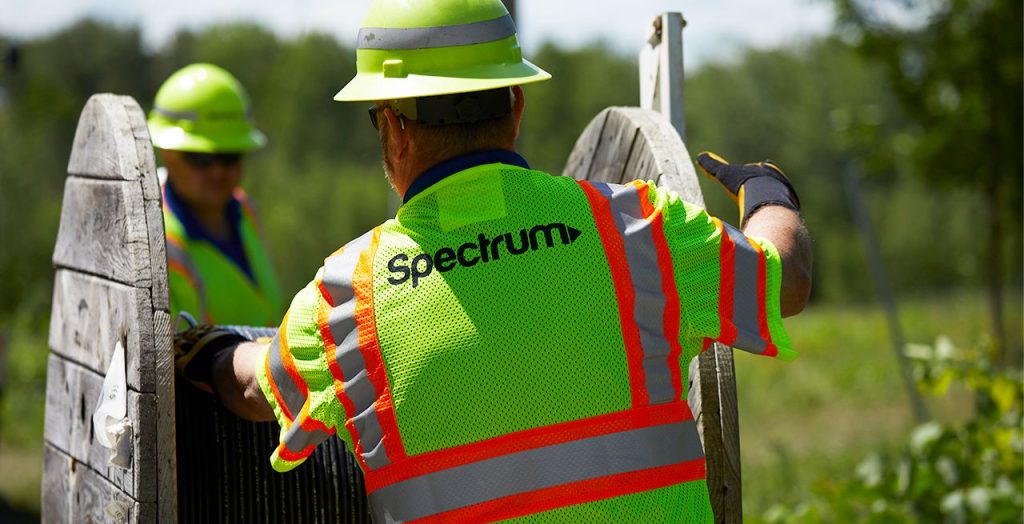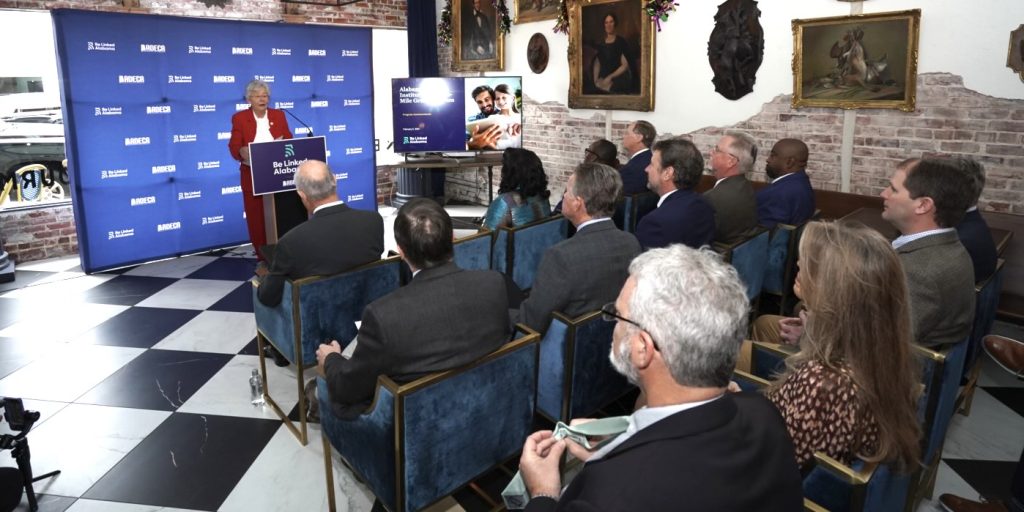MONTGOMERY — The Alabama Rural Broadband Coalition (ARBC) Wednesday held a press conference on the State House steps, emphasizing that legislation currently pending in the legislature is key to the state’s future prosperity.
The state’s biggest job creators, spanning an array of industries and fields, are members of the coalition.
A statement from ARBC explains, “We believe having a reliable internet connection is not only a basic personal necessity in today’s society, but high speed broadband access in rural Alabama could bring an array of benefits related to education, telemedicine, economic development and agriculture.”
The coalition is supporting State Rep. Randall Shedd’s (R-Fairview) HB 400, which will be on the House floor on Thursday. Legislative leaders spoke at the press conference, throwing their support behind the bill and stressing the importance of high-speed broadband access for all areas of Alabama.
Senate President Pro Tem Del Marsh (R-Anniston) kicked things off, saying, “Alabama’s economy is booming with record low unemployment, wages on the rise, new industries continuing to choose the state to expand their business, however we are lacking in [providing] critical broadband infrastructure to all of our citizens.”
Marsh explained that the ARBC is rapidly growing, calling the coalition “an impressive list of people.”
“We have got to look at the future of this state with rural broadband, and this group has been studying this issue, and through that, we have legislation that will be flowing through the Senate in this next week to address these issues and expedite broadband around this great state of Alabama,” he added.
The coalition
Key members of the ARBC as follows:
Agriculture/Conservation:
• ALFA Farmers Federation
• Alabama Agribusiness Council
• Alabama Cattleman’s Association
• Alabama Poultry & Egg Association
Business:
• Business Council of Alabama
• Alabama Association of Realtors
• Alabama Bankers Association
• Alabama Rural Electric Association of Cooperatives
• Blue Cross Blue Shield of Alabama
• Homebuilders Association of Alabama
• Energy Institute of Alabama
• Manufacture Alabama
• NFIB of Alabama
• Southeast Gas
Economic Development:
• Economic Development Association of Alabama
• Alliance for Alabama Infrastructure
• Coosa-Alabama River Improvement Association
• Tennessee-Tombigbee Waterway Development Authority
Education:
• Alabama Community College System
• Auburn University
• Council for Leaders in Alabama Schools
• School Superintendents of Alabama
• The University of Alabama System
•Alabama Education Association
Healthcare:
• Alabama Hospital Association
The legislation
Marsh then thanked State Sen. Clay Scofield (R-Guntersville), who sponsored the Alabama Rural Broadband Act in 2018 and is carrying SB 90 this session to increase the maximum covered project cost under the grant program created by that historic legislation.
SB 90 would additionally change the definition of an “unserved area,” update the minimum service threshold and broaden the permitted use of federal support, including loans and grants, in projects receiving grants under the legislation. The bill is on the Senate Fiscal Responsibility and Economic Development Committee’s agenda for 3:00 p.m. on Wednesday.
State Sen. Steve Livingston (R-Scottsboro) will carry HB 400 in the Senate, and Marsh also praised his leadership in that endeavor.
“These are the two bills that will help us… provide for our citizens, who I believe consider the broadband infrastructure a ‘number one issue’ for the state of Alabama,” Marsh emphasized. “It will have great impact on all of our education… as well as economic development.”
HB 400, which would have no cost to the state or local governments, confirms that electric providers can install, operate and maintain broadband systems using their existing electric easements.
This is expected to encourage electric providers to invest in broadband deployment and accelerate the cost-effective expansion of broadband access in rural Alabama, in many cases using existing infrastructure.
Electric providers may also work with affiliates or third parties under contract to help provide broadband under HB 400.
‘The 21st-century economy’
Lt. Governor Will Ainsworth (R-AL) spoke after Marsh, stressing that rural broadband is the key to Alabama competing in modern times.
I was proud to stand with my colleagues from the House and Senate to advocate for rural broadband expansion this morning. Broadband is a vital tool for the people of Alabama to compete in a 21st century economy. #broadbandforAL pic.twitter.com/70xMSKMio3
— Will Ainsworth (@willainsworthAL) May 1, 2019
“I want to thank Senator Scofield for being a visionary in our state on broadband,” Ainsworth said. “And certainly I want to thank my friend in the House, Representative Shedd, for carrying House Bill 400.”
“Our purpose in why we’re here today is to let everyone know we are dedicated to addressing the infrastructure problem that we have in our state that keeps many people and businesses in Alabama from sharing in the 21st century economy — access to fast, reliable internet service is critical to our state’s economic viability,” he added. “Our economy is strong, but we can do better, especially in rural parts of Alabama.”
Ainsworth outlined the education and economic development ramifications of not having the proper access to broadband in rural parts of the Yellowhammer State. He specifically mentioned the modern agriculture industry’s need for dependable, quality internet access and said HB 400 would allow farmers across Alabama to have that access and compete in the 21st-century economy.
Letter from Alabama Agribusiness Council Executive Director Leigha Cauthen on HB 400 pic.twitter.com/4pWnYVpOow
— Sean Ross (@sean_yhn) May 1, 2019
“Besides the great benefit broadband access brings to small businesses, it is also a necessity for our school children, of which I have three that go to public schools,” Ainsworth explained. “Our young student should not have to fall behind because of where they live. This bill is going to solve that.”
“House Bill 400 is a roadmap to solving this problem and making Alabama better for education, for our economy and for the future,” he concluded.
Milkshakes, hamburgers and WiFi
Next up was Senate Majority Leader Greg Reed (R-Jasper), who echoed the previous comments about economic development and education. He said that the legislation will “move broadband forward in Alabama.”
“When you’re a guy that represents a rural district as I do in areas like Fayette County, Winston County – if you go to the McDonald’s in those communities at 3:00 in the afternoon right after school, you realize there’s a lot of folks there. And they’re not only there for the milkshake and the hamburger, but they’re there for the WiFi,” Reed explained. “Because if the kids in those communities are going to get their homework done in the afternoon, they’ve got to go to a spot that allows there to be internet access. And unfortunately, 70 percent of the school kids in some of the district that I represent do not have broadband access when they leave school to go home.”
He continued, “This is a big problem, and we’re trying hard to address it with the… legislation the House and the Senate are working on.”
Reed also outlined that broadband access is just as important for economic development in rural districts like his.
“We’re not going to allow Alabama’s economy to be everything she wants to be [without improvements in rural broadband],” he emphasized, calling the legislation “a great opportunity for the state of Alabama.”
‘Bring all of Alabama into the internet age’
Shedd followed Reed in speaking, stressing that the legislation “means so much to so many in Alabama.”
He called his bill, HB 400, a “critical avenue” to strengthening the state’s economy, education system and health care network.
“Quick, reliable internet service could even be a lifesaver in small communities,” Shedd said of health care benefits, singling out “advances in telemedicine.”
Shedd advised that HB 400 would prohibit electric providers from requiring a consumer purchase internet service to use their electricity service.
“This issue is so important,” Shedd said.
He added that the ARBC is working together to “bring all of Alabama into the internet age.”
Brannon Littleton, director of the Montgomery School of Music, then addressed the crowd from a small business perspective.
Director of Montgomery School of Music speaking now.
He’s from Active, AL, which he jokes “is not very active.”
Said he’s lost a job before because of poor internet access where he lived in the state.
As a small business owner, he says broadband key to success. pic.twitter.com/tcQWV07gnV
— Sean Ross (@sean_yhn) May 1, 2019
He said broadband access also allows him to teach military members across the globe, which Littleton described as life-changing for individuals.
“If we’re going to change the lives of people in our state for the good, we must not leave those behind who are on the fringes,” he said.
Whitney Barlow, executive director of the Chilton County Industrial Development Board, wrapped the press conference up, speaking on behalf of rural economic development professionals and job creators across the Yellowhammer State.
She said companies looking to locate into their area first ask about workforce, followed quickly by, “Do you have broadband and do you have accessible internet?”
Barlow said rural counties “have so much to offer” businesses, “but our inability to offer adequate broadband has been an issue for now over 15 years.”
“When we grow our broadband in this state, we will make us competitive with our other southeastern states as well as the country,” she concluded. “Broadband is very, very important to economic development, but it’s not just important for companies, it’s important for the quality of life of our citizens.”
Speaker Mac McCutcheon (R-Monrovia), House Majority Leader Nathaniel Ledbetter (R-Rainsville), Senate Rules Chairman Jabo Waggoner (R-Vestavia), State Rep. David Standridge (R-Hayden), Scofield and Livingston were also in attendance, supporting the effort.
Sean Ross is a staff writer for Yellowhammer News. You can follow him on Twitter @sean_yhn




